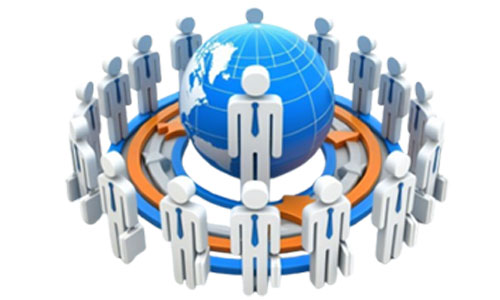About Global Communication

Global Communication – Connecting the World Through Language and Technology
In today’s interconnected world, Global Communication plays a vital role in bridging distances, fostering international relationships, and enabling cultural exchange. Whether it's in business, education, diplomacy, or social interaction, the ability to communicate effectively across borders has become a necessity.
What is Global Communication?
Global communication refers to the exchange of information, ideas, and messages across international borders, using various languages, media, and communication technologies. It involves understanding not only the language but also the cultural context, tone, and values of different societies.
Importance of Global Communication :
- International Business Growth : Companies operate in multiple countries, and communication across teams, clients, and partners is essential. Fluency in global languages like English, Mandarin, or Spanish can boost business relationships and lead to successful collaborations.
- Cultural Understanding and Exchange : Communication fosters mutual respect, tolerance, and understanding among people from different backgrounds. It helps reduce stereotypes and builds global citizenship.
- Education and Research : Global communication supports international education programs, academic partnerships, and research exchange. It opens doors for students and professionals to share knowledge and learn across borders.
- Diplomacy and International Relations : World leaders, diplomats, and international organizations rely on clear and respectful communication to negotiate peace, solve global issues, and strengthen alliances.
- Media and Technology : The internet, social media, and global news networks connect people instantly. Platforms like Zoom, WhatsApp, and Google Translate have made it easier to communicate in real-time, regardless of geography.
Challenges in Global Communication :
- Language Barriers – Misunderstandings can occur if both parties are not fluent in a common language.
- Cultural Differences – Different communication styles, etiquette, and values may lead to confusion.
- Time Zones and Accessibility – Coordinating communication across time zones can be difficult in global operations.
- Technological Gaps – Not all regions have equal access to digital tools and high-speed internet.
- Editing & Proofreading: Reviewing work to correct errors and polish the content.
How to Improve Global Communication Skills :
- Learn Foreign Languages – Multilingual individuals have a competitive edge in global careers.
- Develop Intercultural Competence – Understand customs, body language, and etiquette in other cultures.
- Use Clear and Simple Language – Especially when working with non-native speakers.
- Embrace Technology – Use tools that enable translation, real-time interaction, and efficient collaboration.
- Practice Active Listening – Make an effort to truly understand, not just reply.
Conclusions :
Global communication is the backbone of a connected world. It enables collaboration, promotes peace, drives innovation, and creates opportunities beyond borders. In an era where the world is more linked than ever, mastering the art of global communication is not just a skill – it's a necessity.
Whether through learning a new language or understanding global perspectives, every step toward better communication is a step towards a more united world.
